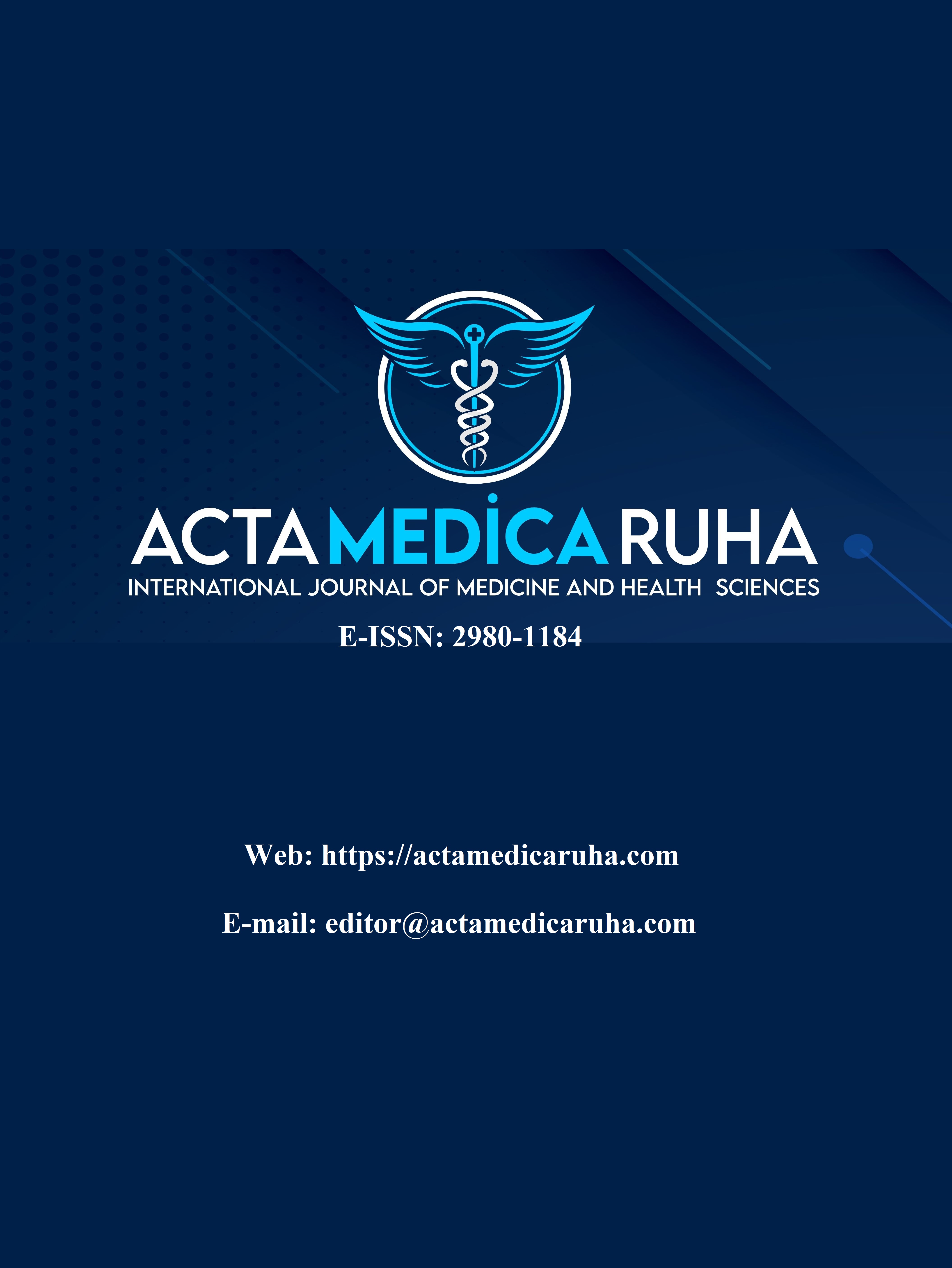Obesity-Induced Inflammation and Cardiovascular Events
Review Article
DOI:
https://doi.org/10.5281/zenodo.13784433Keywords:
Obesity, Obesity and inflammation, Obesity and cardiovascular eventsAbstract
Obesity is a condition that leads to increased morbidity and mortality. It is associated with cardiovascular diseases, type 2 diabetes, cancer and many other diseases. Cardiovascular diseases are the leading cause of death in obese individuals. In addition, many diseases including infection, obesity and diabetes are linked to inflammation. Obesity is associated with an increase in inflammatory cytokines such as interleukin-6, tumor necrosis factor-α and C-reactive protein. Inflammation is also known to be increased in heart diseases such as atherosclerosis, hypertrophic heart failure and myocardial infarction. Adipokines such as leptin, resistin, retinol binding protein 4 and inflammation mediators such as interleukin-1β, interleukin-6, CRP, tumor necrosis factor-alpha, plasminogen activator inhibitor-1, etc. are involved in chronic inflammation. Inflammatory cytokines are mainly released by cells of the immune system but are also synthesized by endothelial cells, cardiomyocytes and cardiac fibroblasts after ischemic or hypertrophic stress. The heart has natural resources of endogenous origin to minimize the inflammation that occurs. To reduce cardiac inflammation, it is necessary either to increase the concentration of anti-inflammatory mediators or to decrease the concentration of pro-inflammatory mediators. Therefore, natural mechanisms of endogenous origin in the heart come into play to positively regulate cardiac function. In conclusion, reducing systemic inflammation and minimizing the activity of inflammatory immune cells will make a major positive contribution to cardiac inflammation.
References
Khafagy R, Dash S. Obesity and Cardiovascular Disease: The Emerging Role of Inflammation. Front Cardiovasc Med. 2021:8:768119. doi:10.3389/fcvm.2021.768119
Rao G, Powell-Wiley TM, Ancheta I, et al. Identification of obesity and cardiovascular risk in ethnically and racially diverse populations. Circulation. 2015;132(5):457–472.
Goswami SK, Ranjan P, Dutta RK, Verma SK. Management of inflammation in cardiovascular diseases. Pharmacol Res. 2021;173:105912. doi:10.1016/j.phrs.2021.105912
Li RZ, Ma Xn, Hu XF, et al. Elevated visfatin levels in obese children are related to proinflammatory factors. J Pediatr Endocrinol Metab. 2013;26(1-2):111‐118. doi:10.1515/jpem-2012-0237
Hu F. Obesity epidemiology. Oxford University Press, Incorporated; 2008.p.1–384.
Bogers RP, Bemelmans WJ, Hoogenveen RT, et al. Association of overweight with increased risk of coronary heart disease partly independent of blood pressure and cholesterol levels: a meta-analysis of 21 cohort studies including more than 300,000 persons. Arch Intern Med. 2007;167(16):1720–1728. doi:10.1001/archinte.167.16.1720
Afshin A, Forouzanfar MH, Reitsma MB, et al. Health Effects of Overweight and Obesity in 195 Countries over 25 Years. N Engl J Med. 2017;377(1):13-27. doi:10.1056/NEJMoa1614362
Van de Voorde J, Pauwels B, Boydens C, Decaluwé K. Adipocytokines in relation to cardiovascular disease. Metabolism. 2013;62(11):1513–21. doi:10.1016/j.metabol.2013.06.004
Robert JH. Obesity and obesity-induced inflammatory disease contribute to atherosclerosis: a review of the pathophysiology and treatment of obesity. Am J Cardiovasc Dis. 2021;11(4):504-529.
Adya R, Tan B, Randeva H. Differential effects of leptin and adiponectin in endothelial angiogenesis. J Diabetes Res. 2015;2015:648239. doi:10.1155/2015/648239
Kwon H, Pessin J. Adipokines mediate inflammation and insulin resistance. Front Endocrinol (Lausanne) 2013;4:71. doi:10.3389/fendo.2013.00071
Odegaard JI, Chawla A. Mechanisms of macrophage activation in obesity-induced insulin resistance. Nat Clin Pract Endocrinol Metab. 2008;4(11):619–626. doi:10.1038/ncpendmet0976
Varlamov O, Somwar R, Cornea A, Kievit P, Grove KL, Roberts CT Jr. Single-cell analysis of insulin-regulated fatty acid uptake in adipocytes. Am J Physiol Endocrinol Metab. 2010;299(3):E486–E496. doi:10.1152/ajpendo.00330.2010
Hamdy O, Porramatikul S, Al-Ozari E. Metabolic obesity: the paradox between visceral and subcutaneous fat. Curr Diabetes Rev. 2006;2(4):367–73. doi:10.2174/1573399810602040367
Esser N, L’homme l, De Roover A, et al. Obesity phenotype is related to NLRP3 inflammasome activity and immunological profile of visceral adipose tissue. Diabetologia. 2013;56(11):2487–97. doi:10.1007/s00125-013-3023-9
Van de Voorde J, Pauwels B, Boydens C, Decaluwé K. Adipocytokines in relation to cardiovascular disease. Metabolism. 2013;62(11):1513–21. doi:10.1016/j.metabol.2013.06.004
Liu Y, Zhong Y, Chen H, et al. Retinol-binding protein-dependent cholesterol uptake regulates macrophage foam cell formation and promotes atherosclerosis. Circulation. 2017;135(14):1339–1354. doi:10.1161/CIRCULATIONAHA.116.024503
Li Z, Hu S, Huang K, Su T, Cores J, Cheng K. Targeted anti-IL-1beta platelet microparticles for cardiac detoxing and repair. Sci Adv. 2020;6(6):eaay0589. doi:10.1126/sciadv.aay0589
Ridker PM, MacFadyen JG, Thuren T, Libby P. Residual inflammatory risk associated with interleukin-18 and interleukin-6 after successful interleukin-1beta inhibition with canakinumab: further rationale for the development of targeted anti-cytokine therapies for the treatment of atherothrombosis. Eur. Heart J. 2020;4(23):2153-2163. doi:10.1093/eurheartj/ehz542
Khan S, Chan YT, Revelo XS, Winter DA. The immune landscape of visceral adipose tissue during obesity and aging. Front Endocrinol (Lausanne). 2020;11:267. doi:10.3389/fendo.2020.00267
Girndt M, Kaul H, Sester U, et al. Anti-inflammatory interleukin-10 genotype protects dialysis patients from cardiovascular events. Kidney Int. 2002;62(3):949–55. doi:10.1046/j.1523-1755.2002.00504.x
Gupta R, Liu L, Zhang X, et al. IL-10 provides cardioprotection in diabetic myocardial infarction via upregulation of Heme clearance pathways. JCI Insight. 2020;5(17):e133050. doi:10.1172/jci.insight.133050
Verma SK, Garikipati VNS, Krishnamurthy P, et al. Interleukin-10 Inhibits Bone Marrow Fibroblast Progenitor Cell-Mediated Cardiac Fibrosis in Pressure-Overloaded Myocardium. Circulation. 2017;136(10):940–53. doi:10.1161/CIRCULATIONAHA.117.027889
Garikipati VN, Krishnamurthy P, Verma SK, et al. Negative Regulation of miR-375 by Interleukin-10 Enhances Bone Marrow-Derived Progenitor Cell-Mediated Myocardial Repair and Function After Myocardial Infarction. Stem Cells. 2015;33(12):3519–29. doi:10.1002/stem.2121
Zhang C, Rexrode KM, van Dam RM, Li TY, Hu FB. Abdominal obesity and the risk of all-cause, cardiovascular, and cancer mortality: sixteen years of follow-up in US women. Circulation. 2008;117(13):1658–67. doi:10.1161/CIRCULATIONAHA.107.739714
El-Wakkad A, Hassan NEM, Sibaii H, El-Zayat SR. Proinflammatory, anti-inflammatory cytokines and adiponkines in students with central obesity. Cytokine. 2013;61(2):682–687. doi:10.1016/j.cyto.2012.11.010
Larsson A, Carlsson L, Lind AL, et al. The body mass index (BMI) is significantly correlated with levels of cytokines and chemokines in cerebrospinal fluid. Cytokine. 2015;76(2):514–518. doi:10.1016/j.cyto.2015.07.010
Motie M, Evangelista LS, Horwich T, et al. Association between inflammatory biomarkers and adiposity in obese patients with heart failure and metabolic syndrome. Exp. Ther. Med. 2014;8(1):181–186. doi:10.3892/etm.2014.1673
Battineni G, Sagaro GG, Chintalapudi N, Amenta F, Tomassoni D, Tayebati SK. Impact of Obesity-Induced Inflammation on Cardiovascular Diseases (CVD). Int J Mol Sci. 2021;22(9):4798. doi:10.3390/ijms22094798
Rahmani A, Ahmadi M, Misgavam S, Farhadi F, Shariatpanahi Z. Body composition and abdominal obesity in patients with and without coronary heart disease. Cardiol Res. 2014;5(2):68–71. doi:10.14740/cr324w
Koushki K, Shahbaz SK, Mashayekhi K, et al. Anti-inflammatory action of statins in cardiovascular disease: the role of inflammasome and toll-like receptor pathways. Clinic Rev Allerg Immunol. 2021;60(2):175–199. doi:10.1007/s12016-020-08791-9
Verma SK, Krishnamurthy P, Barefield D, et al. Interleukin-10 treatment attenuates pressure overload-induced hypertrophic remodeling and improves heart function via signal transducers and activators of transcription 3-dependent inhibition of nuclear factor-kappaB. Circulation. 2012;126(4):418–29. doi:10.1161/CIRCULATIONAHA.112.112185
Michicotl-Meneses MM, Thompson-Bonilla MDR, Reyes-López CA, et al. Inflammation markers in adipose tissue and cardiovascular risk reduction by pomegranate juice in obesity induced by a hypercaloric diet in Wistar rats. Nutrients. 2021;13(8):2577. doi:10.3390/nu13082577
Speakman JR. Use of high-fat diets to study rodent obesity as a model of human obesity. Int J Obes (Lond). 2019;43(8):1491-1492. doi:10.1038/s41366-019-0363-7
Saltiel AR. Olefsky JM. Inflammatory mechanims linking obestity and metabolic disease. J. Clin. Investig. 2017;127(1):1–4. doi:10.1172/JCI92035
Lv ZM, Wang Q, Chen Y, Wang SH, Huang DQ. Resveratrol attenuates inflammation and oxidative stress in epididymal white adipose tissue: Implications for its involvement in improving steroidogenesis in diet-induced obese mice. Mol. Reprod. Dev. 2015;82(4):321–328. doi:10.1002/mrd.22478
Kondo H, Abe I, Gotoh K, et al. Interleukin 10 treatment ameliorates high-fat diet–induced inflammatory atrial remodeling and fibrillation. Circ Arrhythm Electrophysiol. 2018;11(5):e006040. doi:10.1161/CIRCEP.117.006040
Downloads
Published
How to Cite
Issue
Section
License
Copyright (c) 2024 Acta Medica Ruha

This work is licensed under a Creative Commons Attribution 4.0 International License.









